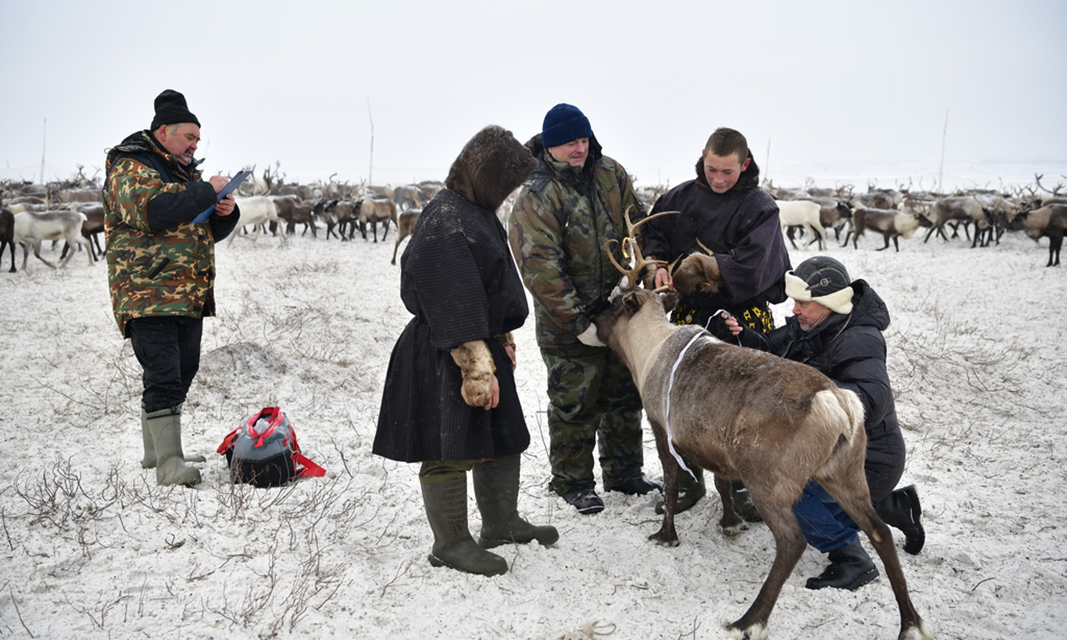First stage of reindeer genetic research completed in Yamal
Scientists have completed the stage of biomaterial selection for genetic research of reindeer in the Yamal-Nenets Autonomous Area. The team of the scientific project to improve pedigree work in reindeer breeding carried out selection measurements (valuation) and collected research material from 100 females out of 1,000 deer.
Specialists focused on a reindeer herd at the Yamal experimental station (part of the Tyumen scientific center). Before the end of the year, 75 high-class females will be selected to create a breeding nucleus based on the gathered data.
“The essence of our research is in its name: ‘Improving pedigree technologies in northern reindeer breeding in the Yamal-Nenets Autonomous Area.’ Pedigree work does not only include genetics but also the right livestock and breeding record and, of course, diet. But it is genetic markers that will help us to significantly speed up the selection process,” says Kasim Laishev (Ph.D. in Veterinary Sciences), senior research fellow of the St. Petersburg Federal Research Center of the Russian Academy of Sciences.
First of all, the scientists’ work is aimed at increasing the volume of harvested top-quality reindeer: the kind of meat produced by a healthy, well-fed reindeer with a good pedigree, which the breeding record is designed to track.
“Scientific research is divided into several stages and areas: genetic analysis, assessment of the genetic pool and genetic anomalies, and development of recommendations for reindeer farms on obtaining highly productive breeding deer. Such research was done in Yamal before, but for the first time, the project is aimed at improving reindeer’s economic traits and increasing performance characteristics in Yamal reindeer breeding using selection research,” says Maxim Maksimchik, director of the Yamal experimental station.
“The work to improve the effectiveness of selection in reindeer herds is a long and difficult process, so it must be planned for years ahead. Success depends on the interest of the Yamal-Nenets leadership and reindeer farmers who directly follow the scientists’ recommendations. It is good that reindeer farmers and associations, the local agricultural department, the local veterinary service, and scientific institutions pool efforts in Yamal. Working together is easier and more effective,” stresses Alexander Yuzhakov (Ph.D. in Agricultural Science), leading reindeer selector and chief research fellow of the St. Petersburg Federal Research Center of the Russian Academy of Sciences.
In December 2020, the project’s scientific team will summarize the first results and present them to the government of the Yamal-Nenets Autonomous Area.
